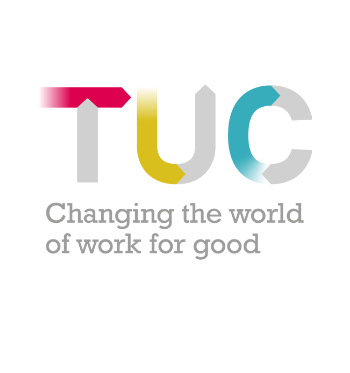The TUC has backed the single market for 30 years - here's why
Today the TUC Congress will debate the UK's future relationship with the EU, almost thirty years to the day since European Commission President Jacques Delors won British unions over to supporting UK membership of the European Union and its single market.
That support endured through the 2016 referendum, when three in five trade union members voted in line with the TUC position and that of most trade unions by backing remain.
But some trade unionists voted leave because they feared continued EU membership would hamper a future UK government’s ability to implement radical policies, or because they worried the EU was promoting the dismantling of collective bargaining as well as austerity or privatisation.
We’re not trying to persuade anyone to back the status quo. We are committed to real change in the European Union, as are trade unionists across Europe.
But we must address legitimate concerns some trade unionists have about remaining in the single market.
No one voted for a bonfire of rights
Thirty years ago, President Delors told the TUC Congress in Bournemouth that no one ever fell in love with a market. Instead, he promised a social dimension to the EU based on workers’ rights enshrined in law, quality public services and collective bargaining.
Trade unionists across Europe have won more many workplace rights since then, but we know that right-wingers like Boris Johnson and Michael Gove are planning to go after them as soon as we leave the EU.
The European Trade Union Confederation (ETUC) has also called for the end of European-wide austerity so that public services can recover.
And we need to restore the role of collective bargaining in setting the wages and conditions of workers across Europe.
No trade unionist voted to reduce hard-won workers’ rights.
Yet these rights are underpinned by the rules of the single market, so leaving could leave them open to attack by future UK governments. And they are enforced by the European Court of Justice, whose protection we will lose after Brexit.
There is also growing concern among trade unionists in manufacturing and its supply chains that the government’s red line on the single market could threaten jobs.
So why remain in the single market?
1. It protects workers’ rights
No one believes that the EU has given us our rights at work without a struggle.
Trade unionists in Britain, France and Germany had to fight our governments and employers to win rights like paid holidays, fairness for part-timers, and equal pay.
And European trade unions are still campaigning for wider collective bargaining rights to get workers a pay rise across Europe.
We won these rights within the EU, and we could lose them if we left the single market.
The ETUC is also fighting to develop stronger rules against the exploitation of migrant workers, starting with the revision of the Posted Workers Directive.
All too often in the UK, these workers are used to reduce wages. This has nothing to do with EU law and everything to do with the weakness of UK employment laws, which fail to ensure all working people get the going rate for the job.
The latest changes to the Directive give us the scope – through the TUC’s sectoral collective bargaining proposals - to prevent bosses using migrant workers to drive down pay and conditions.
2. It allows state aid but cracks down on monopolies
Successive British governments have used EU state aid and competition rules as a smokescreen for privatising industries like rail and the post office and denying our steel industry support to compete in global markets.
Labour’s progressive election manifesto in 2017 contained several proposals not only to renationalise those industries but also to use state aid and public procurement to protect good jobs, raise pay and improve skills training.
None of those measures would be prohibited by the EU’s rules, which allow governments to correct market failures and promote regional development (although we do want to reform EU competition rules).
Under current EU rules, while the UK spent on average €100 per capita on State aid between 2009 and 2015, Belgium spent €181, France €224 and Germany €266 over the same period.
What EU state aid and competition rules do is to prevent monopolies and allow the EU to take on multinationals like Google and Microsoft.
3. It avoids economic damage
Leaving the single market will severely damage the economy, as leaked government assessments have shown.
Far from delivering a ‘Brexit dividend’ for spending on the NHS, as the infamous red Brexit battle bus implied, leaving the single market will actually mean less money for the NHS, schools, and public housebuilding.
And fantasy trade deals with some pretty dodgy regimes (including the pro-privatisation, anti-workers’ rights Trump administration in the USA) won’t make up for what we lose in trade with the rest of Europe.
The best option
At last year’s general election, pro-Leave Labour voters put spending on public services and tackling the low pay, low productivity economy top of their list of priorities.
It will be more difficult to address those challenges if we’re out of the single market.
We’d be happy to consider any alternative that meets these tests and also deals with problems like the Northern Ireland border, Gibraltar and so on.
But at the moment, nothing else delivers what working people need.
Stay Updated
Want to hear about our latest news and blogs?
Sign up now to get it straight to your inbox


